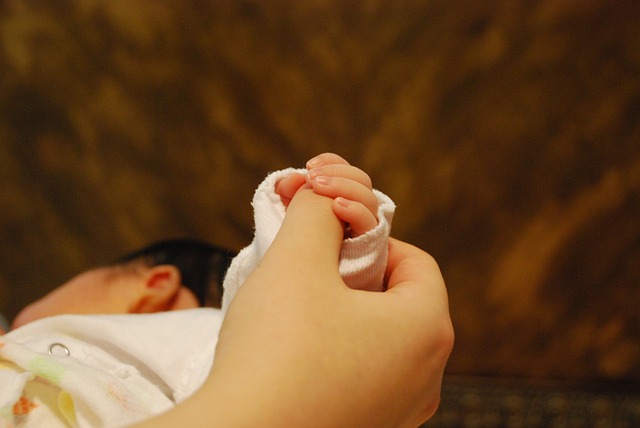The life of a new mama is stressful. It doesn’t matter how many books you’ve been reading about parenting when you first hold your baby in your arms; you suddenly become aware of how vulnerable your little wonder is. Your baby relies entirely on your – and on the other parent – to grow up healthy and happy. Looking after a person is very challenging, and it’s not uncommon for new parents and especially mothers to feel lost or confused from time to time. There is not a mother on Earth who doesn’t worry that she might be doing something wrong each time her baby seems to have a health issue. Many mamas are too embarrassed to ask because they feel they should know.
Let’s get things clear from the start. Unless you’re a trained doctor, there is no way you could understand all the needs and complaints of your baby. A lot of it is a happy process of trial and error. And it’s perfectly normal. There is nothing you should feel guilty about at this stage. There’s a lot of pressure on mothers. Along with hormonal changes, it’s easy to see why too many mamas doubt their parenting instincts. Therefore, you’ll find here a short article about some of the most common complaints of babies and why it’s not your fault.
My baby’s skin is flaking away
Baby’s dandruff, as in flaky and dry skin, is a lot more common than you think. It can occur on the scalp, but also on other areas on the body – you can also find it on the face, the back, the legs, etc. Doctors refer to it as cradle cap, and thankfully it isn’t contagious or dangerous. It disappears from itself within the first year of life. But if you’re wondering what to avoid when treating cradle cap, you should make sure to ask your doctor to confirm the diagnosis. Ultimately, why doctors are unsure how the condition develops, it’s important to note that it has nothing to do with poor hygiene. However, as the skin is affected, it’s best to make sure that you keep the house clean and clutter-free to avoid reaction to dust and air pollutants. The most common explanation for cradle cap is that the baby’s sebaceous glands aren’t yet working correctly or that there’s a yeast imbalance. Tips to help is to bathe your baby no more than once and use micellar water and gentle shampoo on the skin.
My baby cries as soon as I put him/her down
Some babies can make your life hard. They just don’t want to be put down and begin to scream as soon as you let go of them. But don’t let this affect you. It isn’t an indication of your parenting skills, and it certainly doesn’t mean that you should always carry your baby. An expert advises getting your baby used to lying down over a period of time. Start with a few minutes and go back to reassure your baby until you can build up to longer periods. In the long term, it’s the safest method to get both of you used to the situation. Experienced mothers recommend leaving the baby to cry, but it can be a difficult decision for a young mama!
My baby won’t breastfeed
At the heart of the debate between breastfeeding and bottle feeding, many mothers experience difficulties coming to term with their decision. While breastfeeding is the most natural approach, not all mothers and babies are happy with it. Some babies seem to refuse it when they’re giving the breast. However, don’t take it personally! You need to remember that it’s a new experience for both of you. Your baby needs to practice to get milk, and you may need more time to figure out how your body works too. Your baby might be fussy because the feeding doesn’t suit the scheduled time. Sometimes, your baby could feel your discomfort and get nervous as a result. Take your time to go through these steps together.
My baby vomits after almost every feeding
Every mother has heard about the little after feed burp. So it might come as a shock when your baby spits up after feeding, despite all your best efforts. Don’t panic. Most babies do as they experience mild acid reflux. The spit up might peak around 4 months and stop by 12 months. Abnormal vomiting, on the other hand, is tainted and might be accompanied by fever.
When a mother asks what is wrong with her baby, what she truly means is: Am I a bad mother? But a lot of health discomfort experienced by your baby during the first months of life are normal and don’t reflect on your ability to look after your child. You’re doing a great job; don’t blame yourself for every boo-boo.





